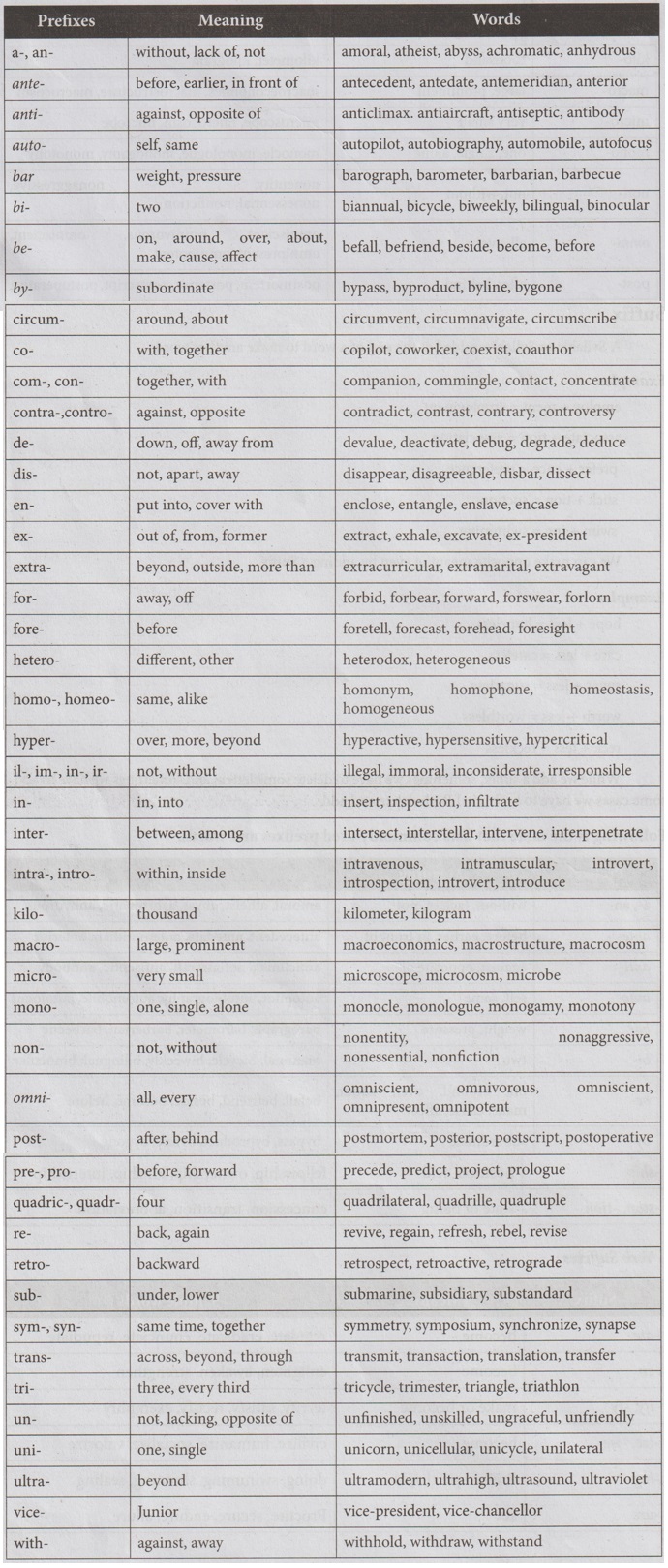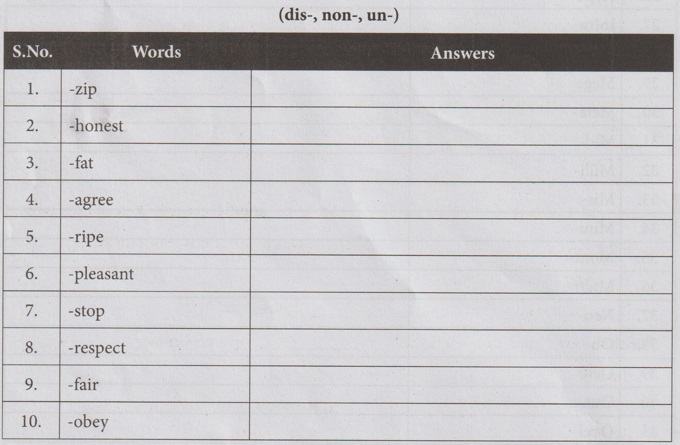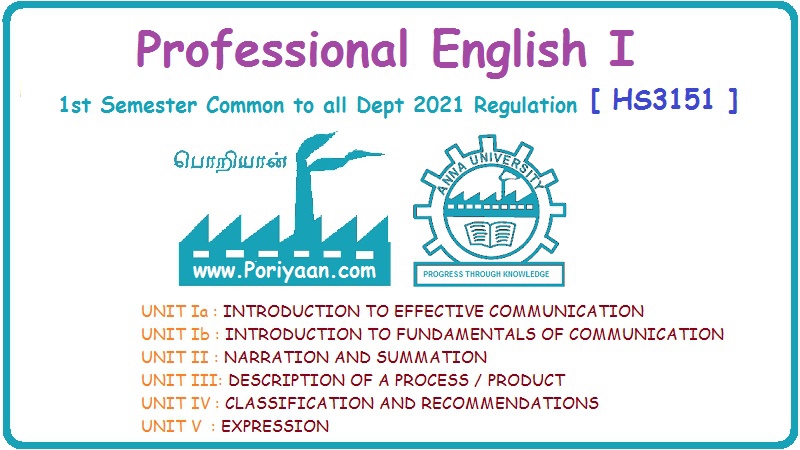Professional English I: Skill 2: Introduction to Effective Communication: Vocabulary
Word Forms (prefixes and suffixes)
Vocabulary | Professional English
A considerable number of English words used in technical writing have been derived from Greek, Latin and French languages.
Topic - 4 WORD FORMS (PREFIXES AND SUFFIXES) A considerable number of English words used in technical writing have been derived from Greek, Latin and French languages. We can often learn the meanings of these words, if we are acquainted with the general meanings of the prefixes of these foreign languages. However, the meanings have more often changed so fast and so much, that the word-orgin does not help us find the meanings. An affix is a morpheme. (i.e) a linguistic element that cannot be further divided. It is called an affix as it is affixed to an already existing word (which is referred to as a stem). Affixing is one of the ways of coining new words. The Dictionary meaning for the word affix is, “a letter or group of letters added to the beginning or at the end of a word to change its meaning or the way it is used”. A Syllable or Syllables added at the beginning of a word. Examples a+ broad = abroad a + fresh = afresh ab+ use = abuse re+write = rewrite In the above examples by just adding a letter a, ab, re, we changed the meaning of the word (i.e) we coined a new word. Sometime, we can even make opposite meaning by adding a prefix. Examples im + proper = improper im + possible = impossible in + appropriate = inappropriate un + employment = unemployment dis + connect = disconnect A Syllable or Syllables added at the end of a word to make another word. Examples employ + ment = employment associate + tion = association prefer + ence = preference suck + tion = suction swim + ing = swimming We can make opposite meaning even by adding a Suffix. Examples hope + less = hopeless care + less = careless sugar + less = sugarless worth + less = worthless reck + less = reckless While we add a suffix, sometimes we have to delete some letters and sometimes we have to add. In some cases we have to both .(i.e) Both delete and add. Following is the table that lists commonly used prefixes and words. The following suffixes are grouped beneath the grammatical function they perform: 1. Noun Suffixes 2. Verb Suffixes 3. Adjectives Suffixes 4. Adverb Suffixes I. Form words using the following Prefixes. II. Add the correct prefix to the front of each base word to make a new word. III. Use the words you made above to complete each sentence. 1. Haley knew it was _______ to copy her sister's homework. 2. Luke could not _______ his jacket. 3. Claire ate some _______ yogurt before going for a run. 4. Gloria did not tolerate _______ from anyone. 5. Philip worked _______ on his project. 6. Cameron and Mitchell _______ about everything. 7. Jay had an _______ time at the party. 8. Manisha would never _______ his mother. 9. Lily ate the banana even though it was still _______. 10. Alex felt her teacher was being _______. IV. Use the word bank to complete each sentence. biweekly disabled microphone monotone unclear costar ex-girlfriend midflight rewrite uninterested 1. His handwriting was so messy, his teacher made him _______ his paper more neatly. 2. If you are confused or _______ about any information, please ask me questions after the presentation. 3. Because we get paid _______ I won't get another pay check until next week. 4. She acted _______ even though she was very curious about the new guy at work. 5. The plane ran out of fuel _______. 6. The presenter spoke with a _______ voice. 7. Selma Hayek and Tom Hanks will _______ in a new movie. 8. She is my _______. We broke up last year. 9. Please speak into the _______ so the whole audience can hear you. 10. The robber _______ the security alarm. V. Form words using the following Suffixes. VI. Use the word bank to complete each sentence. 1. China and Japan ______ many goods to other countries. 2. They _______cars, clothes, shoes, and many other things in their factories. 3. My father works in a ______ that makes food for cows. 4. Vegetables have important ______ and minerals that help keep you healthy. 5. The government of the United States is a ______. Political power comes from the people. 6. Many older people have _____ problems. They are at risk for a heart attack. 7. Fifty years ago, before e-mail, a fast way to send a message was by _____ 8. The Klondike Gold Rush occurred in the Yukon ______ of Canada. 9. When you _____ with others on a job, the work gets done faster. 10. A ______allows explorers to see parts of the ocean never seen by man.INTRODUCTION
Prefix
Suffix





Practice Exercises




Professional English I: Skill 2: Introduction to Effective Communication: Vocabulary : Tag: : Vocabulary | Professional English - Word Forms (prefixes and suffixes)
Related Topics
Related Subjects
Professional English I
HS3151 1st semester | 2021 Regulation | 1st Semester Common to all Dept 2021 Regulation
